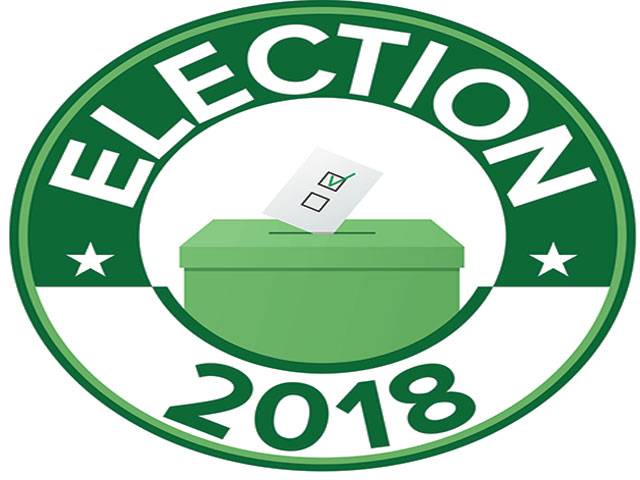ISLAMABAD - As barely two days have left for the general election, electioneering has picked up the all-time high pace across the country.
Lavish advertisements by political parties and candidates in the national media, buzzing of mobile phones with messages of candidates and ringing of door-bells by contenders and their supporters have become all the more a common practice to reach out to the voters to grab maximum votes.
In sheer desperation to grab maximum seats, major political parties have dumped their manifestos and have turned to more sell-able-single point agendas.
For the Pakistan Tehreek-e-Insaf (PTI) — which emerged as the third largest party in the 2013 general election — forming a government in the centre is a matter of “now or never”. The party which has been struggling hard to grab the coveted slot for the last over two decades, 65-year-old Imran Khan cannot wait for another five years to become the prime minister.
Unlike the Pakistan People’s Party (PPP) and the Pakistan Muslim League-Nawaz (PML-N), the PTI has little past achievements to relate to the work of the former two parties as Khan spent a significant fraction of time in the last five years in road protests, instead of fully focusing in Khyber-Pakhtunkhwa where it was in power. Having no future roadmap, the party has narrowed its whole narrative on a single liner maxim — defeating Sharifs by any possible means.
Khan doesn’t miss any opportunity in slinging mud at his opponents, channelizing all his energy in targeting the arch-rival, PML-N, that defeated his party in the last general election.
Despite being in hot waters facing serious graft cases against its leadership, the PML-N still seems to be a nightmare for Khan.
There are palpable indications that the real political battle will be between the PML-N and the PTI, however, political pundits eschew to predict who will win or grab the popular votes due to the overall volatile situation in the country.
Despite having the support of "stars", electable and impressive rallies, Khan is anxious. The bizarre language by the cricketer-turned-politician against his opponents and calling potential voters as "donkeys" is nothing but his growing frustration. And, there are reasons for Khan's bitterness.
To make a government in the centre, Khan needs 191 seats — a simple majority in the 342-member Lower House. Of the total 342 seats, 272 are general, 60 reserved for women and 10 seats are for non-Muslims. As the polling day is approaching, the next legislature seems to end up being a hung parliament. A total of 105.95 million votes are likely to split among over 100 contesting parties.
Recent months have been, no doubt, a roller-coaster ride for both the PTI and the PML-N. If the PML-N had seen a “plunge” in its popularity due to the ongoing cases against its leadership, the PTI experienced a blow due to the third marriage of its chief, and of course, the most controversial but exceptionally well-articulated biography by his ex-wife, Reham Khan.
A strong resentment from within the party ranks for doling out tickets to newly-inducted electable, tainted with tags of corruption, has equally had a bearing on the party.
Failing to cash in on the conviction of Sharifs in cases related to Panama leaks, after long and assiduous efforts, seems to be another blow for Khan especially when the jail incarceration has bought more sympathies for his intransigent opponents (Sharifs).
To Khan's dismay, the failure of the PML-N's top brass to reach the Lahore airport to receive former premier Nawaz Sharif did not affect the popularity of N-league to a great extent but those who failed to receive him at the airport.
Any loss of opponents should have been the gain for Khan's party but it did not happen. Although there could be internal and external factors which may turn the table on the polling day, chances are that no party will be able to get a majority in upcoming elections due to intense-cut-throat- competition.
Having an army of electable does not guarantee a win and contesting polls to make a government is altogether a different science. Apart from past setbacks, mobilizing voters on July 25 would be another challenge for the PTI.
After a defeat in local government polls in 2015, the right-leaning PTI, despite its all popular support, failed to break the stronghold of the PML-N and biradari politics in Punjab. It immediately dissolved party offices, blaming lack of organizational discipline in party ranks and held an intra-party election in 2017. The post-election litigations suggest that workers were not disciplined yet.
The defeat of another electable, Jehangir Khan Tareen's son, in the by-elections of Lodhran should have been a lesson for the PTI, but instead of reaching out to the masses ahead of upcoming elections, Khan opted to rely on electable and aptly on ‘unseen forces’.
He also tried to play the religious card but failed dejectedly as several pro-establishment religious parties jumped into the political fray to claim their share. Though they could later join hands with Khan, for time being, they will probably dent the PTI's vote bank and even may get some seats, apparently, to keep the “too-much independent” Khan in control, once a possible coalition government is formed.
Those, who claim the establishment or the spy agencies are backing Khan to grab the premiere slot, also believe that a hung parliament is part of the “script”, though the “masters” may have high expectations from the new government.
Today, with mobile phone camera in everyone’s hand, it would be hard to engineer polls at a massive level, but still, the “script writers” know many tricks.
The clock is ticking, nothing much could be done or undone now and polls would be over soon, Khan must concentrate on the post-poll scenario.
If Khan becomes the prime minister with a team of turncoats and opportunists in a possible hung parliament, will the PTI deliver to the country and the public is a question he should now be worried about.






